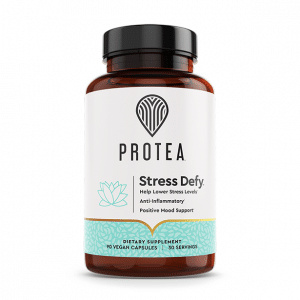There are more than 80 different autoimmune diseases that can affect different parts of the body. Autoimmune diseases occur when the body’s own natural defense system can’t differentiate between healthy cells and foreign invaders, so the body attacks itself. While 50% of autoimmune diseases have unknown trigger factors, some autoimmune diseases still have no known causes. We do know there are a number of factors that can play an important role in their development, like genetics, environment, hormones, and stress.
Many studies have shown that a high percentage of patients, up to 80%, reported uncommon emotional stress before the onset of the disease. Unfortunately once someone does develop an autoimmune disease, the disease itself also puts added stress on the patient which in turn can cause a vicious cycle.

A recent study looked at the comparison of physiological stress on stress-related hormones which showed that stress-triggered neuroendocrine hormones may lead to immune dysregulation, eventually leading to autoimmune disease. While evidence supports that stress can lower the immune system’s ability to fight off antigens, along with impacting autoimmune disease flares, there is still conflicting evidence on whether stress alone can cause certain autoimmune diseases.
Stress management is an important factor when it comes to minimizing the risk for developing autoimmune diseases along with managing autoimmune diseases. While there are many lifestyle changes one can make to reduce stress, supplementing with natural herbs to help lower the body’s natural stress response is another great option to consider. Some common herbs known to help reduce stress are ashwagandha and rhodiola, both found in Protea Nutrition’s Stress Defy. If you are on any medications or have been diagnosed with an autoimmune disease, before taking any natural herbs it is important to first check with your physician.

The contents of this blog should not be taken as medical advice. It is not intended to diagnose, treat, cure, or prevent any health problem-nor is it intended to replace the advice of a physician. Always consult your physician or qualified health professional on any matters regarding your health. These statements have not been evaluated by the Food and Drug Administration. This product is not intended to diagnose, treat, cure, or prevent any disease.





